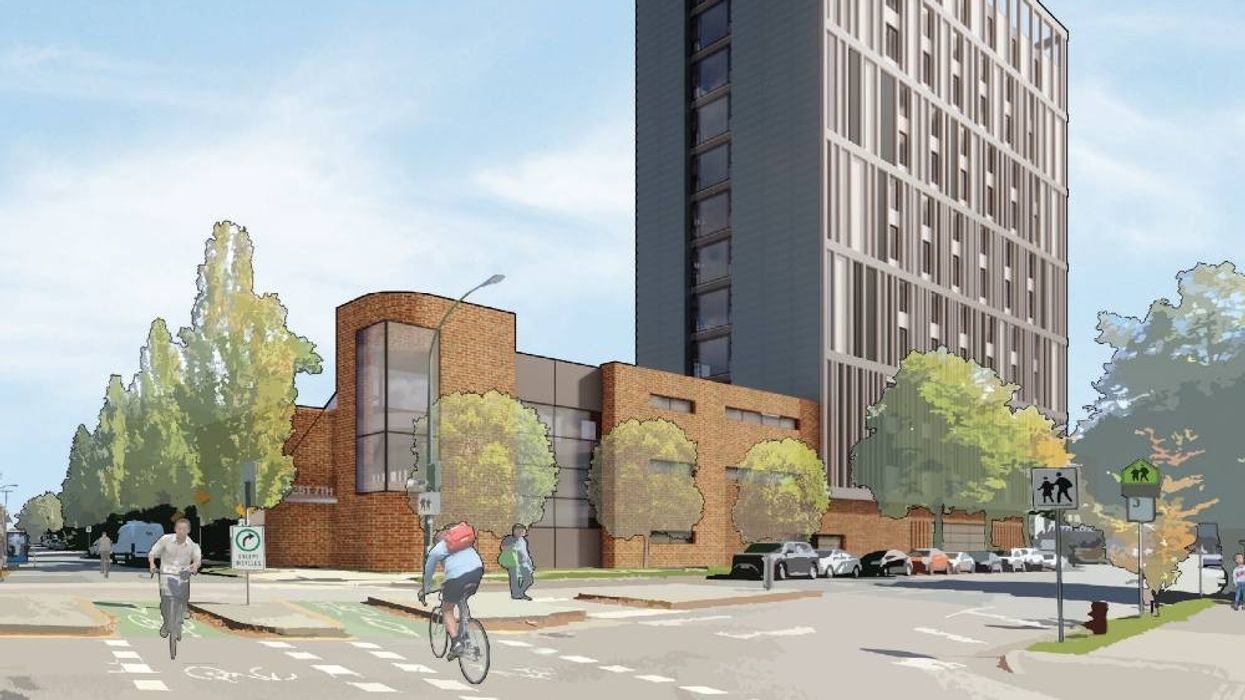After a six-day-long public hearing that amassed 295 speakers, 1,561 letters of opposition, and 542 letters of support, Vancouver City Council voted to pass the rezoning of 2086-2098 West 7th Avenue and 2091 West 8th Avenue yesterday night. Upon competition, the 13-storey building will add 129 one-person social housing units to the city at a time when accessible housing is sorely needed. Building residents will also have access to wraparound services, including addiction recovery and mental health supports.
The project has sparked heavy controversy since it was proposed in October of last year. In particular, a local residents group, the Kitsilano Coalition has rallied against the project at every corner, going insofar as to hire a professional PR firm, distribute flyers, and recruit Julian Somers, a Simon Fraser University researcher, and Thomas Gove, a retired BC criminal judge, to help argue their case.
Over the course of the public hearing, the Kitsilano Coalition voiced concerns over the project's proximity to St. Augustine School and Sancta Maria House Society, the aesthetic of the prefabricated modular tower, and the increase of pedestrian and vehicular traffic. They also criticized the efficacy of the congregated housing model, asserting that a scattered model should be used instead.
On the flip side, Kitsilano for Inclusivity, Abundant Housing Vancouver, and the Aboriginal Housing Management Association are amongst the entities in support of the project, in addition to several members of council and Mayor Kennedy Stewart.
Despite the vehement opposition, the larger issues at play in Vancouver -- homelessness and poverty -- outweighed any arguments to axe the proposal.
"We are working as quickly as possible to provide more safe and secure homes for vulnerable people in Vancouver," said David Eby, Attorney General and Minister Responsible for Housing. "We’ve made real progress providing homes with 24-7 supports for over 1,000 people in Vancouver since we formed government, but there’s more to do. When people are housed, they can access things like health care and skills training to help rebuild their lives and help build stronger communities."
The Arbutus Street development will be managed by the MPA Society, a non-profit organization known for their work in the arenas of mental health support and housing advocacy. The MPA Society will be on site 24-7 to manage the building and will also help to facilitate daily meals, healthcare services, Indigenous cultural programming, skills building, and employment support, amongst more.
In addition, the MPA Society and BC Housing will create a Community Advisory Team to address the concerns of Kitsilano residents.
The Arbutus Street development is one of two social housing proposals that was recently approved. The other, approved in June, is a 14-storey building at East King Edward Avenue operated by the Vancouver Native Housing Society. It will supply 109 affordable, supportive units to the market.
Although the pushback for this project wasn't nearly as fierce, it's still a big victory for housing advocates and Vancouver's most vulnerable.
"These projects will provide much-needed housing and help us create safe, inclusive communities for everyone," said Mayor Kennedy Stewart. "By creating hundreds more warm, safe and supportive homes with basic necessities, such as food, washrooms and laundry, we can ensure that fewer people are outside struggling to survive. This is how we make sure Vancouver is a city that works for everyone."





















